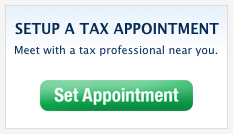Can Self-Employed People Get Lower or Higher Tax Rates?
It can often seem like the self-employed person has to pay higher tax rates than the traditional employee. While every person and every situation will be different, the self-employed can find ways to save money on their taxes. One of the very best things you can do for yourself, as a self-employed person, is to seek out a skilled accountant and/or tax preparer. Having someone knowledgeable working for you can help you to find many tax breaks and other money-saving options for which you are eligible. You’ll still have to pay your fair share of taxes, but chances are you won’t overpay even by a penny!
One example of a way you can save as a self-employed person is the education tax credit available to the self-employed and to small business owners. You can’t, of course, just go to school for anything that you want and expect a deduction, but if you go to school for something related to your job, count it as credit! The deduction isn’t just for the cost of tuition either; you can also factor in the price of textbooks, school supplies, and even your travel to and from school. It’s not even necessary to be in a degree-granting program; as long as you’re paying to learn for the sake of your job, you’re entitled to a tax break.
If your business ever requires you to travel, especially long distances, you could be in for some major tax breaks. When you use your own car or a specially designated business car, your gas and even regular maintenance on the vehicle could potentially be covered. Plus, when you’re going to be outside of your home base, you can get discounts on costs like hotel bills, dining out at restaurants, and more.
Every small business owner and/or self-employed individual knows that communication is key to being successful. You likely have to engage in regular phone calls, email conversations, and fax machine transmissions with your clients and/or employers. When that is the case, you can get a deduction for all related bills. If you’re using your phone, internet, fax machine, or other devices for your own non-business related purposes, however, make sure you only factor in the business costs. An easy way to do this is to opt for an itemized bill when possible and to make note of which items on the bill were related to your business.
And, as most self-employed individuals know, it’s easy to get tax credits when you have a home office. Be aware, however, that you can’t usually get away with counting your bedroom or your living room as your office. You need to have a space that is reserved specifically for work and nothing else in order for this deduction to be given to you fair and square. If you do have a home office, however, you can enjoy deductions on everything from your brand new printer to paper and other office supplies.
Have a tax question? Ask one of our tax professionals.



